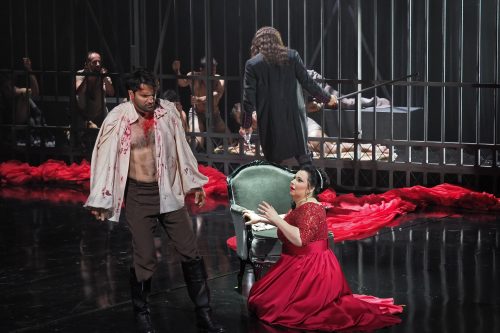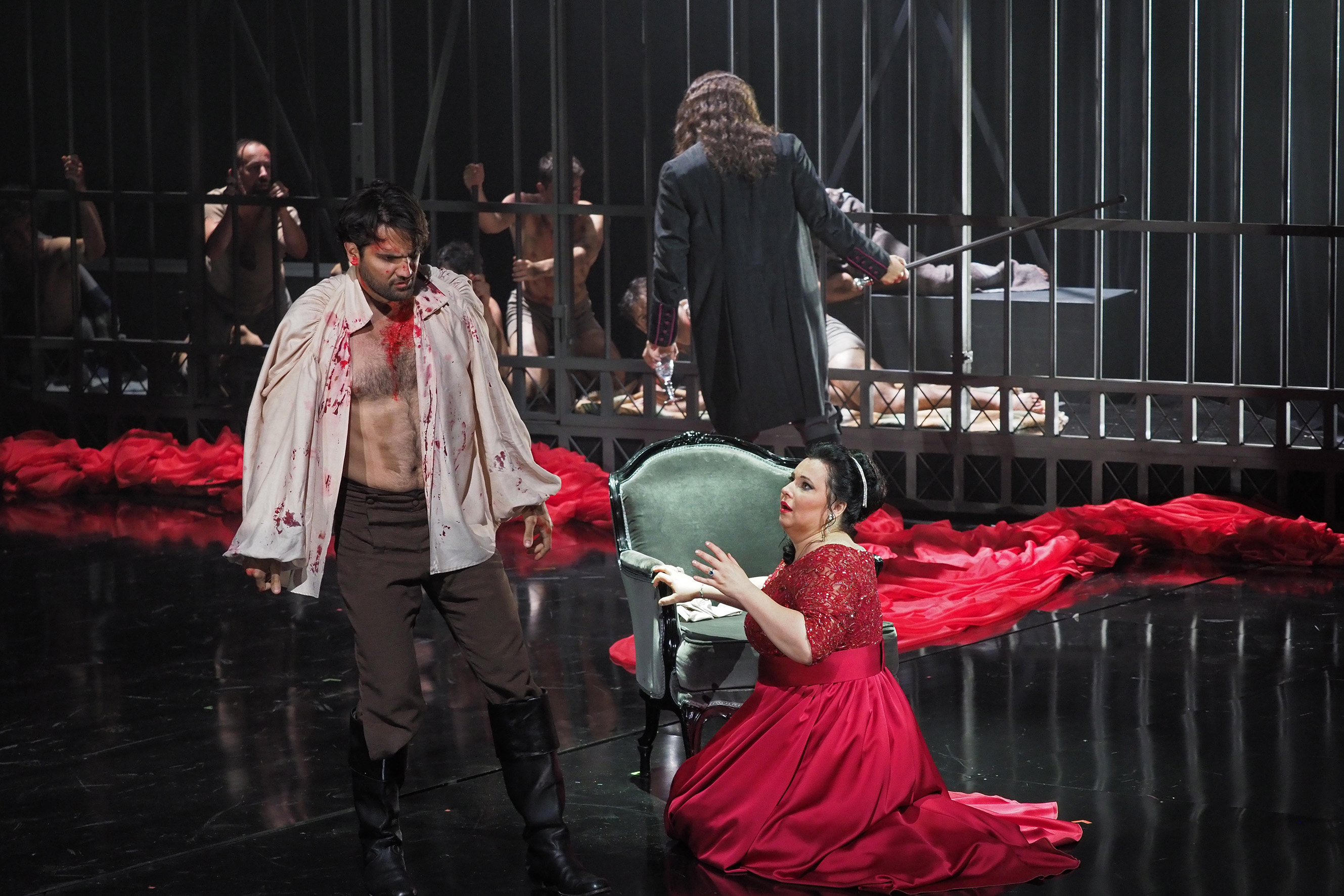 Spain Puccini, Tosca: Soloists, Cor Infantil Amics de la Unió, Liceu Chorus and Orchestra / John Fiore (conductor), Gran Teatre del Liceu, Barcelona, 9 & 11.6.2019. (JMI)
Spain Puccini, Tosca: Soloists, Cor Infantil Amics de la Unió, Liceu Chorus and Orchestra / John Fiore (conductor), Gran Teatre del Liceu, Barcelona, 9 & 11.6.2019. (JMI)

Production:
Director & Sets – Paco Azorín
Costumes – Isidre Prunés (original), Lluna Albert (revival)
Lighting – Pedro Yagüe
Cast:
Tosca – Liudmyla Monastyrska/Tatiana Serjan
Cavaradossi – Jonathan Tetelman/Roberto Aronica
Scarpia – Erwin Schrott/Lucio Gallo
Angelotti – Stefano Palatchi
Sacristan – Enric Martínez-Castignani
Spoletta – Francisco Vas
Sciarrone – Josep-Ramon Olivé
Gaoler – Marc Pujol
Shepherd – Inés Ballesteros
This Puccini masterpiece – which was last performed in Barcelona in 2014 – was enthusiastically received by the audiences that filled the house on the two recent evenings that I attended. The production by Paco Azorín premiered here five years ago, and I reviewed it at the time: review
The musical direction was under the baton of John Fiore, who was making his debut at the Liceu. He did a splendid job and drew a better sound from the pit than what one often hears in this theater. Notably, his tempi were lively throughout the opera. If I am not mistaken, it was also Fiore’s opera debut in Spain, and he made a very positive impression.
Floria Tosca was played in the first cast by soprano Liudmyla Monastyrska who is one of the most important voices of the moment, especially in the repertoire of spinto and dramatic sopranos. As I have found on other occasions, the most recent of which occurred last year when she sang Manon is this theater, her vocal performance was remarkable, but she fell a bit short in terms of her interpretation and her ability to transmit emotions. She did extremely well, but I cannot say that I found her outstanding. If one draws a comparison between the performance here of Sondra Radvanovsky five years ago and that of Monastyrska, there is a clear difference, and one in favor of the former.
The second Tosca was soprano Tatiana Serjan, whose voice is pleasing though not as strong as that of her colleague in the first cast. However, Serjan’s interpretation was more compelling, and her voice is well-suited to the role.
Fabio Sartori had been announced to sing the role of Mario Cavaradossi, but he canceled some time ago and was replaced by tenor Jonathan Tetelman, whose performance was not particularly convincing. His voice is attractive and suitable for this character, but his middle range projects badly, and he has a tendency to sing out of tune at the top. He had some problems with ‘Vittoria! Vittoria!’ and was unpersuasive in his Act III aria, which received both applause and some isolated boos. In the second cast, tenor Roberto Aronica’s voice seemed more appropriate to the role. He has some vocal imperfections too, but in general his voice works well.
In the first cast, Baron Scarpia was played by bass-baritone Erwin Schrott, whose performance was exaggerated and fairly one-dimensional: there were no nuances in his interpretation of this evil character. Lucio Gallo gave life to Scarpia in the second cast, and although vocally he is less impressive than Schrott, his interpretation seemed more convincing. He did not exaggerate and brought some nobility to the role.
In the secondary characters, Stefano Palatchi was a sonorous and appropriate Angelotti, while Enric Martínez-Castignani made a discreet Sacristan. There were also solid performances from Francisco Vas in the part of Spoletta and Josep-Ramón Olivé as Sciarrone. Marc Pujol was a correct jailer, while Inés Ballesteros fulfilled her role as Shepherd.
The Liceu was nearly full on both nights, and the biggest ovations were for Monastyrska, Schrott, Serjan and Fiore.
José M. Irurzun
